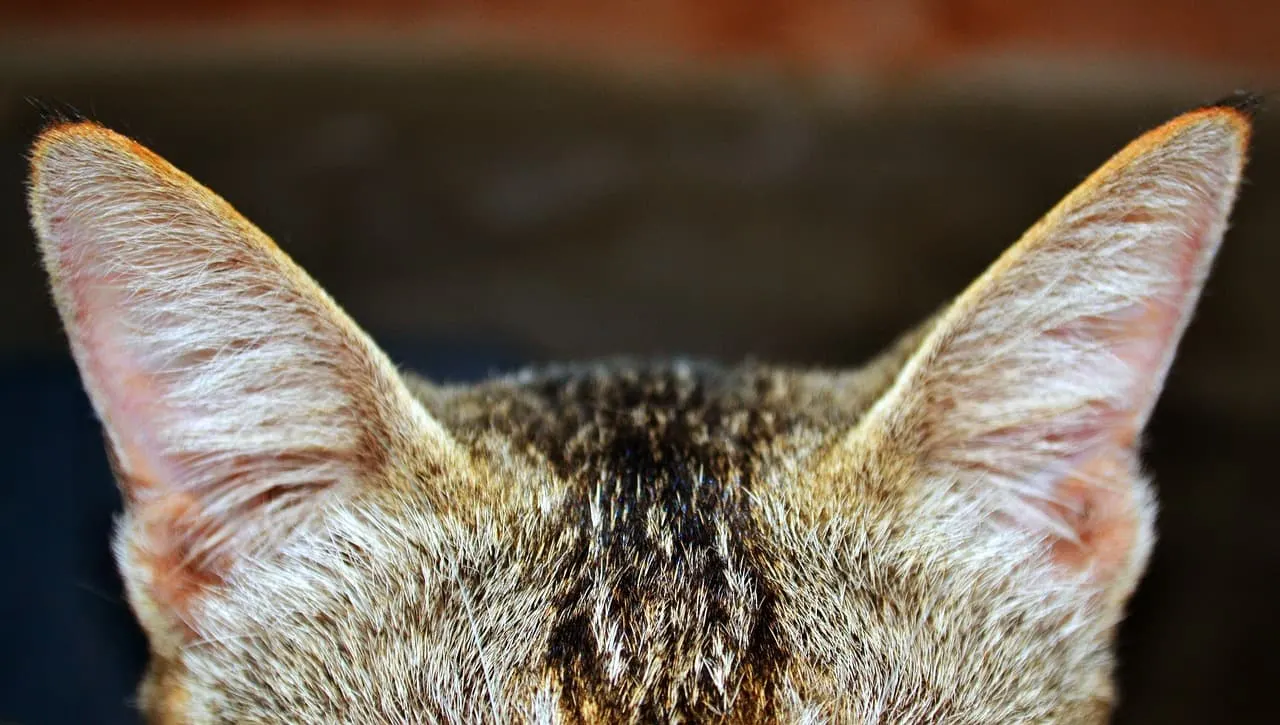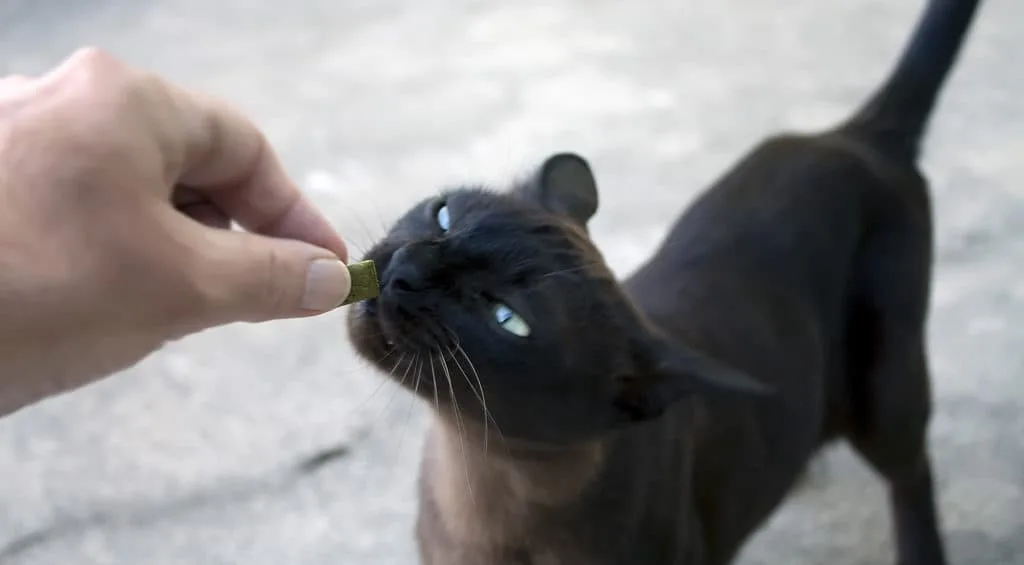Can cats recognize their names? Almost all cat owners have experienced calling their cat’s name over and over and getting no response.
At times it can seem like your cat doesn’t know their name or is just ignoring you!
As frustrating as this is, you’ll be happy to know there is an answer!
Science proves that cats actually do know their names — well, kind of.
They just don’t always show it in ways we understand.
Keep reading to find out how cats acknowledge us calling their name.

Your voice matters!
According to the journal of Animal Cognition, cats are able to tell apart vocal cues between humans.
Although cats have a reputation for being notoriously aloof, studies show that cats do respond to repetition and tone of voice.
Science Direct describes this as a socially learned process, and that many animals are known to learn and display their abilities through social interactions.
How you speak to your kitty is also extremely important.
Cats are sensitive creatures and have the capability to feel threatened or safe by your tone of voice and its loudness.
The amount of times you call your cats name combined with the way you call his/her name sets the tone (pun intended) for how your cat might respond to you.
This is especially true when you start to train your cat.

How Cats Show They Understand
The ways cats view their owners could have an impact on how they react to when their name is called.
Dogs have been domesticated to listen to their owner’s orders, but cats have a different history. Humans did not domesticate cats – cats domesticated themselves.
TIME magazine suggests that cats actually see humans as clumsier, bigger cats whereas dogs see humans as their superiors.
Because of this, cats have a very different way of responding to humans, and they also have different motivations to show they understand.
Below are some ways you can tell if your cat understands you:
- Orienting behavior: One of the ways in which you can tell if your cat understands their name is if they “orient” themselves towards you. According to the Journal of Animal Cognition, cats respond to human voices by doing things such as moving their tails and ears towards their owner’s voices!
- They meow back: Cats have learned to meow through their interactions with humans. Meows are specifically for humans; cats don’t normally meow at other cats. When your cat meows at you, especially after you call your kitty’s name, then this is a direct response!
- Treats are involved: This might be common knowledge, but cats are most motivated by…themselves! Their own needs and desires are a priority, so they will be more likely to respond to food instead of your voice.

Teaching Your Kitty to Respond
Most cat owners don’t realize how stressed their cats can get. Stress has a very negative impact on their health and relationship with you!
This is important if you want your feline friend to respond positively to you. Below are tips on how to safely train your kitty to respond to their name:
1. Observe your cat: The first step to teaching your kitty to respond requires you to fully understand your cat and its surroundings.
John Bradshaw, a cat behavior expert at the University of Bristol, recommends first examining your cat’s social stage in life.
The optimal time to teach your cat to be social is during “kittenhood.” This is when they are most absorbent to new information, just like humans!
2. Use positive reinforcement: Cats (unlike dogs) have no hierarchy of leadership. They are not drawn to obey their owners like dogs are.
Instead, cats carefully construct a database in their heads over time. They understand patterns.
Cats won’t come to you when they are called if they don’t know what will happen. Positive reinforcement is especially important if you want them to come to you when you call their name.

3. Reward immediately: Timing is essential with your kitty. Cats have short attention spans.
If you want to reward them, you must do so immediately otherwise they might not understand why you are rewarding them.
4. Reward consistently: This is also another important part of training. Make sure you give your kitty the same reward consistently for whenever he/she does something you want them to do.
It’s essential that you ensure those in your friend group and family to reward your cat in the same way.
5. Train at the appropriate time: Training before a meal (because we all know cats are most motivated by food!) is the best time to train your kitty. Be sure to only train for short periods of time – around 15 minutes.
Once your kitty stops responding to you, that is your cue to stop training them at that moment. Don’t force training, otherwise they’ll start avoiding it.
**WARNING*** Never punish your kitty, especially in the wrong way.
Yelling, hitting, or shaking your cat is NEVER OK. This will also make your cat confused and fearful of you, and may end up in your cat avoiding you completely.

The Final Answer? Yes!
It turns out, your cat does recognize his/her name…it just might not be 100% motivated to respond to you.
However, just because this is the stereotype for cats doesn’t mean cats don’t love their owners just as much as dogs do.
A study published in Feline Cognition & Behavior claims that cats actually prefer the company of other humans to food, catnip, and toys.
Remember that each cat is unique and behaves differntly. Only you can know the true nature of your cat and the special relationship you two have.
Do you think your cat knows their name? Tell us in a comment below!


Estelle
Friday 21st of May 2021
My 3 cats all know their names. Sometimes they choose to ignore me but their ears and tails will move when I call their names. I love them all. They make me feel peaceful. I love hearing them purr.
Catlover
Monday 26th of October 2020
My cat always looks at me when I call his name. I say another name in a happy voice and he ingores me! (unlike dogs. I called the dog saying: here silly! And she came over wagging her tail XD)
Kathleen
Saturday 18th of July 2020
I have had my cat for just under six years. She walked in one evening and stayed . The vet thought she was about five years old when she arrived, but she was microchipped as a male from some distance away, and there was no response t phone calls. Eventually she was proved to be female and seems to be happy to live with us, as she has stayed for six years so far, I would hate to lose her now. She has a distinct love/hate relationship with my dog, who was only a puppy when she arrived. Lose her now.
Sheila Wright
Wednesday 6th of May 2020
I have nine cats and they all know their names. One won't acknowledge her name but if she sees me she starts vocalizing. What she wants s to be brushed. She lives to be brushed. My oldest comes immediately unless she is asleep.
Hilda
Saturday 23rd of November 2019
My 4 month kitten responds well when I call him. Rio, is very alert, playful and so loving, loves to cuddle by my side. Purrs and meows. Follows me everywhere I go, all by calling out his name.